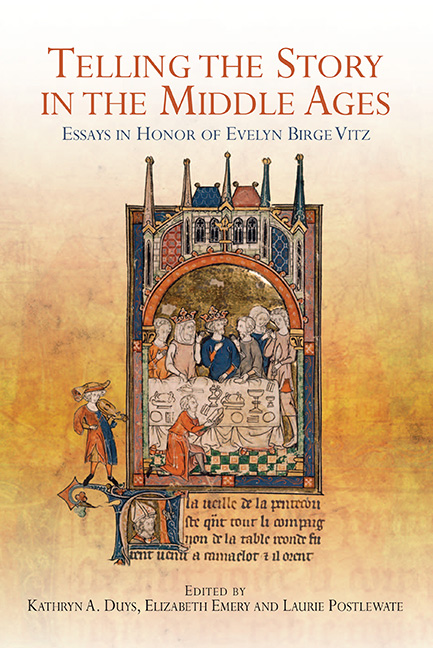Retelling the Old Story
Published online by Cambridge University Press: 17 June 2021
Summary
A good story is hard to forget. It doesn't let you tell it only once and then shelve it forever. Nor does it suffer immutability. It wants to be told repeatedly, and each new telling is somehow, deliberately or not, different from those that have gone before. A good story evolves over time, changing language and medium, shifting audience, altering focus, recasting its purpose and motivation. Surely, no tale in Western literature has undergone so many tellings, retellings, adaptations, reshapings, revisions and translations as the many-faceted tale of King Arthur and his knights. This creative and recreative work began in the High Middle Ages and has never stopped, so alluring is the myth of that incandescent court. Whatever its origin, the Arthurian matter came to full bloom in thirteenth-century France. Across the Channel in what, after all, was its legendary homeland, it eventually underwent what is arguably its most memorable transmutation at the hands of the fifteenth-century English writer Sir Thomas Malory. To the hundreds of Arthurian titles already published – in tongues as varied as Dutch and Russian, Italian and Yiddish, Catalan and German, and Hebrew, Welsh and Armenian – the twentieth and twenty-first centuries have added countless more, spurred on by one another but in part, too, by the remarkable success of Joseph Bédier's recreation of the story of Tristan and Iseut (1900). Such proliferation has included a more extensive set of genres than ever before: not only novels, poems and operas, but films and games, plays and musical shows…
To take only prose retellings in French, a choice further narrowed to the story of Sir Lancelot alone, at least three narratives appeared in the last two decades of the twentieth century: Florence Trystram's Lancelot in 1987 and, in 1993, both Jean Markale's Lancelot du Lac and Jacques Boulenger's Les Amours de Lancelot. Still, that was hardly the final word on even so limited an Arthurian subject, and a significant Old French source made it clear that there was room for further reworking of the Lancelot story. Why, indeed, would a contemporary writer wish to recount such a tale, were there not something new to say, some new facet to explore? Trystram offers no explanation for her effort, letting her prose provide its own raison d’être. Boulenger proceeds similarly, taking for granted that the story is too compelling not to warrant transmission to a new readership.
- Type
- Chapter
- Information
- Telling the Story in the Middle AgesEssays in Honor of Evelyn Birge Vitz, pp. 239 - 244Publisher: Boydell & BrewerPrint publication year: 2015

